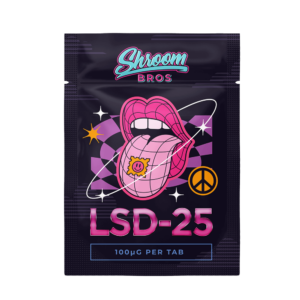Lysergic acid diethylamide (LSD) is a potent psychedelic compound known for its profound effects on perception, mood, and cognition. In Canada, LSD has a complex history and remains a subject of interest in various contexts, including cultural, scientific, and recreational spheres. This article provides an in-depth exploration of LSD, focusing on its forms, effects, and presence in Canada.
Understanding LSD
Chemical Composition and Origins
LSD is a semi-synthetic compound derived from lysergic acid, which is found in the ergot fungus that grows on rye and other grains. It was first synthesized in 1938 by Swiss chemist Albert Hofmann and later discovered to have psychedelic properties in 1943. (en.wikipedia.org)
Mechanism of Action
LSD primarily affects the serotonin system in the brain, particularly the 5-HT2A receptor. By binding to these receptors, LSD alters sensory perception, mood, and thought processes, leading to the characteristic psychedelic experience. (en.wikipedia.org)
Forms of LSD
LSD is available in various forms, each with unique characteristics:
1. Blotter Paper
The most common form, where LSD is dissolved in a solvent and applied to sheets of absorbent paper. These sheets are then divided into small squares, each representing a single dose.
2. Liquid LSD
A clear, colorless liquid that can be ingested directly or applied to other mediums like sugar cubes or gelatin squares.
3. Microdots
Small tablets containing LSD, known for their compact size and potency.
4. Gel Tabs
Gelatin squares infused with LSD, offering a different texture and absorption rate compared to blotter paper.
Variants of LSD: LSD-25, White Fluff, and Needlepoint
LSD-25
This term refers to the original form of LSD synthesized by Hofmann. It is considered the standard or pure form of the compound.
White Fluff
A colloquial term describing a particular crystal form of LSD. Users report that white fluff has a slightly different onset and duration compared to other forms, though chemically it remains LSD-25. (reddit.com)
Needlepoint
Another term used to describe a high-purity crystalline form of LSD. Like white fluff, it is still LSD-25 but may differ in subjective effects due to purity levels or crystal structure. (reddit.com)
Effects of LSD
Onset and Duration
-
Onset: Effects typically begin within 20 to 90 minutes after ingestion.
-
Peak: The peak experience occurs around 2 to 4 hours in.
-
Duration: Total effects can last between 8 to 12 hours. (adf.org.au)
Psychological Effects
-
Altered perceptions of time and space
-
Visual and auditory hallucinations
-
Enhanced introspection
-
Mood swings ranging from euphoria to anxiety
Physiological Effects
-
Dilated pupils
-
Increased heart rate and blood pressure
-
Sweating or chills
-
Loss of appetite
-
Insomnia
LSD in Canadian Context
Historical Perspective
LSD gained popularity in Canada during the 1960s and 1970s, aligning with global counterculture movements. It was used both recreationally and in psychiatric research before regulatory changes limited its availability.
Current Landscape
While comprehensive data is limited, LSD continues to be used recreationally in Canada. Its presence is noted in various subcultures and is occasionally discussed in media and online forums.
Conclusion
LSD remains a compound of significant interest due to its profound effects and complex history. In Canada, it continues to be used in various contexts, reflecting its enduring presence in the cultural and scientific landscape.













